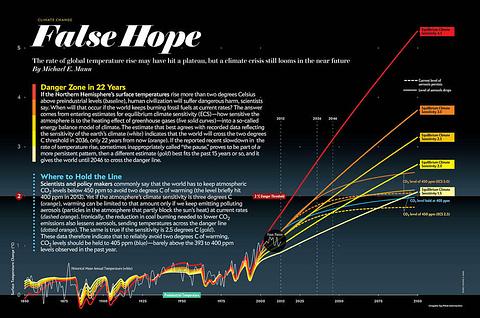Thailand under Water 2: A Hot Date
Thailand under Water 2: A Hot Date
So we see (in the last episode) how a larger than life quest begins (from little things, big things grow). Before we rush out, save the world and become heros, let us 'look before we leap'.
But really do we worry about things that may or may not happen in 50-100 years?
Most of us (and those who read this) are not going to be around in 50 years even within deep 'blue zones' (or places where many people over the age of 100 years old live). The future is ours to see 'que sera, sera' -- whatever will, be will be. Our children will solve the problem or adjust to it somehow as human has always done (or perished). Some of us may argue that it is really pointless to spray a burning house with water; when the fire is put out, the house is damaged by water anyway. Then the mess to demolish and clean...
Do we need to answer or to do anything really?
Well, that can be argued in many ways for a long while. We can say it depends on what (we incline to) believe . What are the good, the bad and the ugly or otherwise of impacts of rising sea water on people? If we believe in 'business as usual' then we would waste time and resources on this. If we believe in horrible dooms descending down upon us then we would do all we can to avoid it. But should we at least think about what can happen and play with some numbers (or models) to make us look like we respond to this question in a reasonable and scientific way?
[This is the reason behind my taking of the challenge. Thinking and predicting what can happen is fun (at my age ;-) and costs much less than panicking when sea water comes lapping at the front door of my home.]
Do we have 50 years to think and to prepare for rising sea water, really?
Take a walk on a sandy beach, any beach. We can see evidence of beach sand movements. Either sand is carried up and deposited on walk ways and streets, or sand is washed away and steep sandy cliffs await the next waves. Is it evidence of sea water rising? Or is it just waves and swells are higher and stronger? Let's hear what 'scientists' say:
http://www.scientificamerican.com/article/earth-wi... Mar 18, 2014 By Michael E. Mann

<picture from http://www.scientificamerican.com/sciam/assets/Ima...>
[In Brief
The rate at which the earth's temperature has been rising eased slightly in the past decade, but temperature is still increasing; calling the slowdown a “pause” is false.
New calculations by the author indicate that if the world continues to burn fossil fuels at the current rate, global warming will rise to two degrees Celsius by 2036, crossing a threshold that will harm human civilization.
To avoid the threshold, nations will have to keep carbon dioxide levels below 405 parts per million.]
'A Date with Destiny: 2036' (only 22 years from now) :
Most scientists concur that two degrees C of warming above the temperature during preindustrial time would harm all sectors of civilization—food, water, health, land, national security, energy and economic prosperity. Equilibrium climate sensitivity (ECS; see en.wikipedia.org/wiki/Climate_sensitivity) is a guide to when that will happen if we continue emitting CO2 at our business-as-usual pace.
But see also Climate Expert von Storch: Why Is Global Warming Stagnating?
in issue 25/2013 (June 17, 2013) of DER SPIEGEL.
...Storch: The potential acidification of the oceans due to CO2 entering them from the atmosphere. This is a phenomenon that seems sinister to me, perhaps in part because I understand too little about it. But if marine animals are no longer able to form shells and skeletons well, it will affect nutrient cycles in the oceans. And that certainly makes me nervous.
But, but,,, this is temperature rising with more CO2, not about sea water rising... really...
... Let me take my break now. We will continue soon. OK? ;-)
ความเห็น (1)
The potential acidification of the oceans due to CO2 entering them from the atmosphere !!!